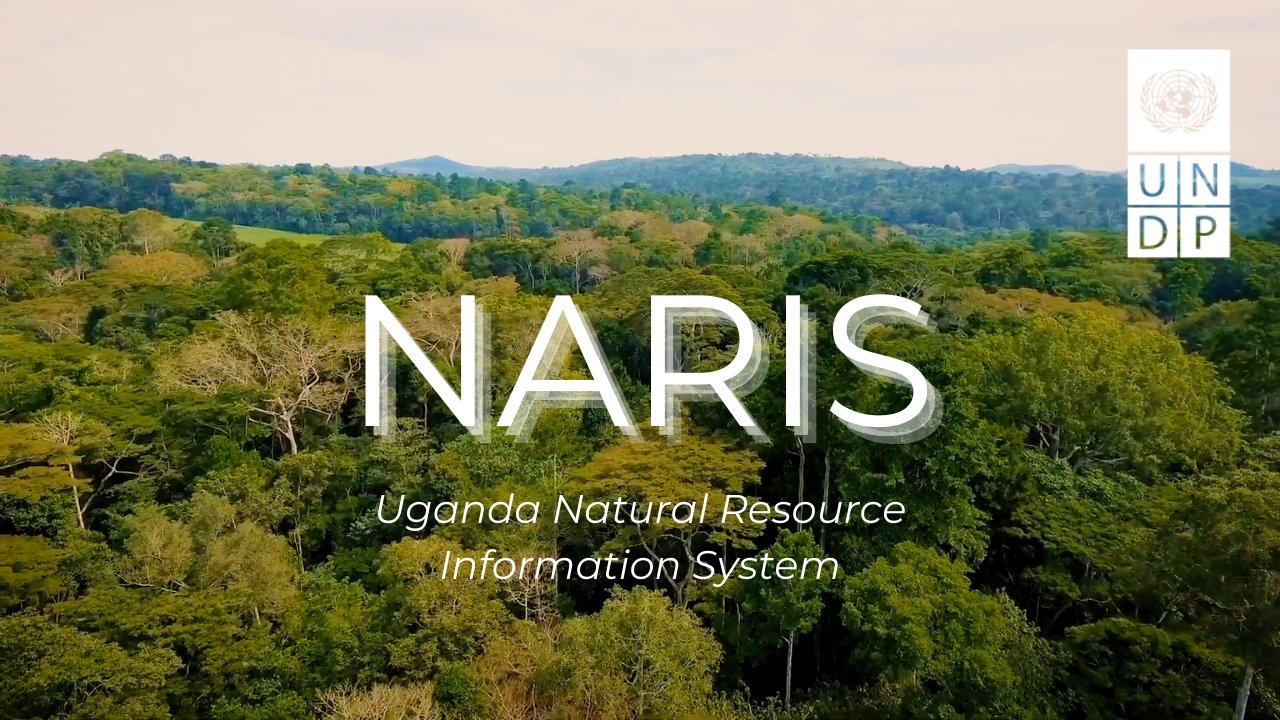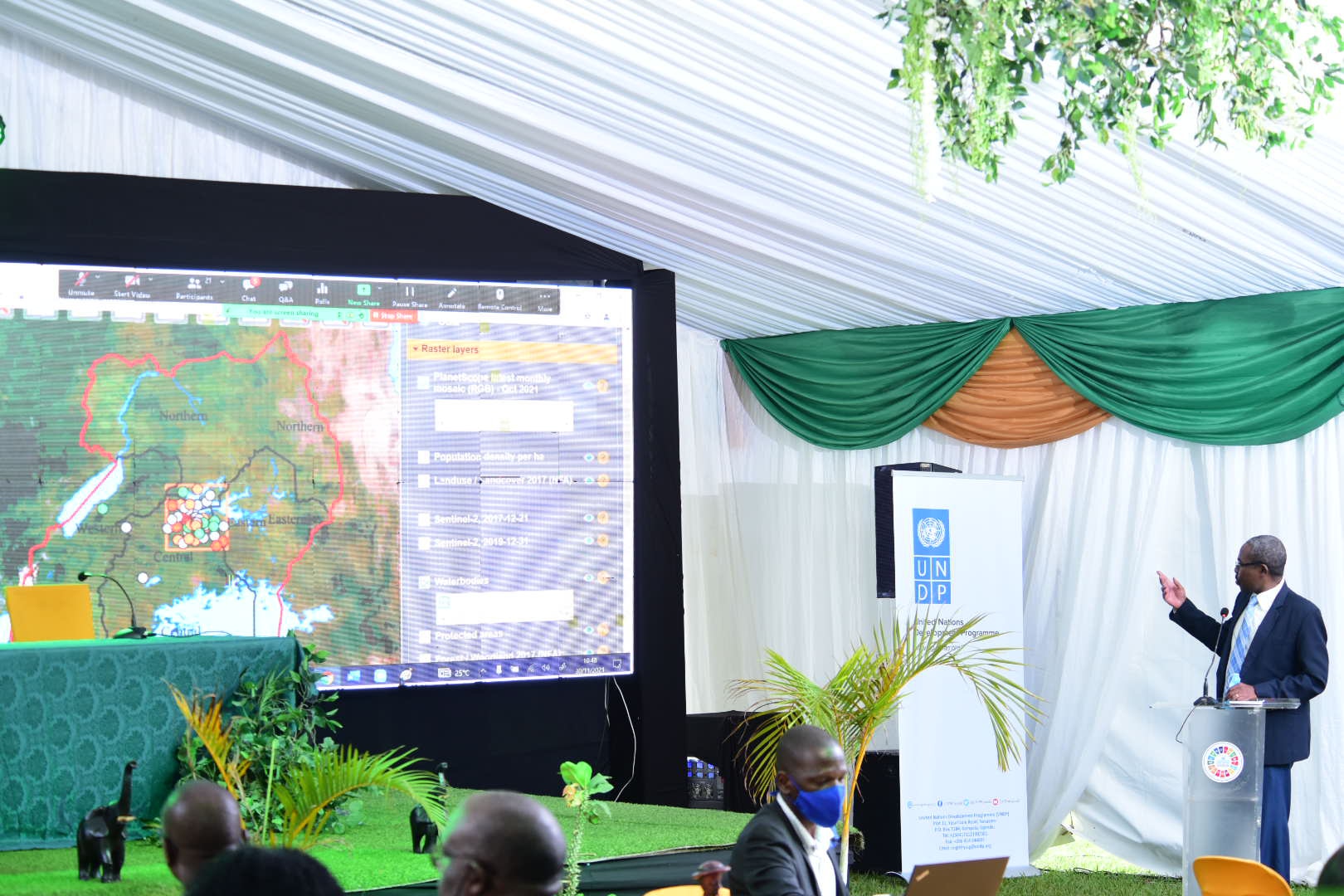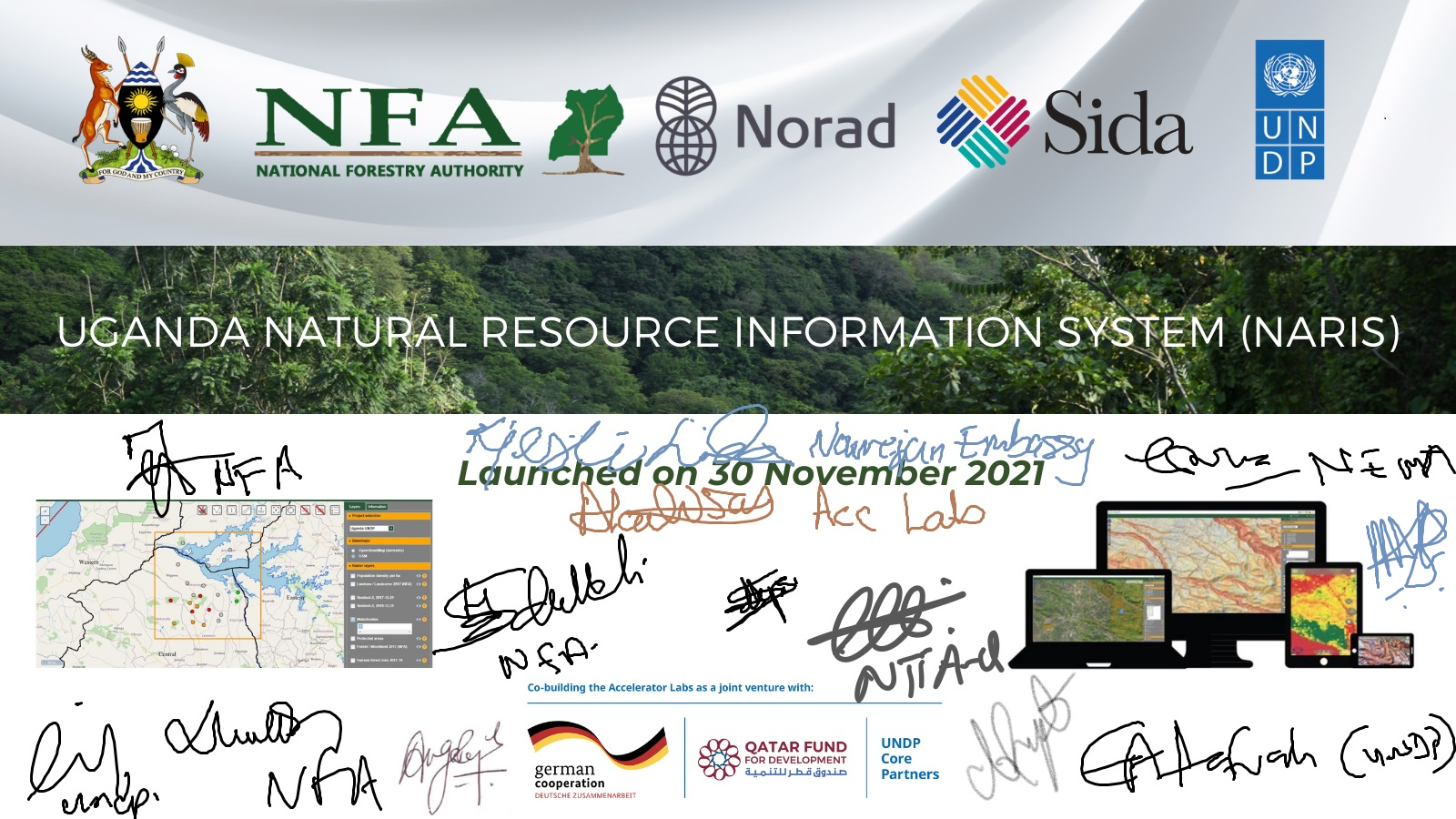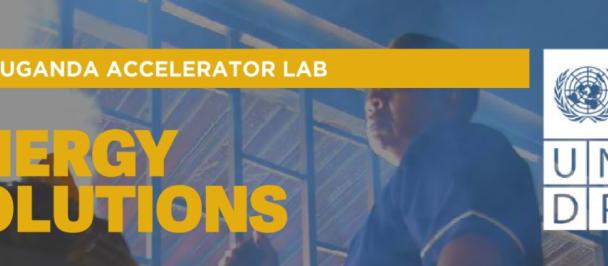The United Nations Development Programme (UNDP) Uganda Accelerator Lab and the National Forestry Authority (NFA) launched the Uganda Natural Resource Information System (NARIS), designed to monitor and mediate deforestation throughout Uganda to protect the country’s forests and biodiversity.
NARIS is a collaborative, real-time data mapping system being implemented to monitor changes in forest cover, track the impact of initiatives relating to deforestation, and provide an open data source for future initiatives. The system is accessible to government bodies, the private sector and other key stakeholders in the forestry and environmental sectors, serving to forecast future trends in forest cover, generate support for prevention and mitigation of deforestation, and provide credible data to influence decision-making on resource mobilization and land allocation relating to activities conducted in Uganda’s forests.
Image: Mr. John Diisi of NFA demonstrates the NARIS platform.
NARIS can be used both online and offline, consisting of desktop and mobile applications for use in office and field locations. The system incorporates a web user interface incorporating a geographic information system (GIS) with a landcover map of Uganda as a baseline, a mobile application to assist with field monitoring and validating information gathered from satellite imagery, the capability to track changes in forest cover over time and validate field actions through the mobile interface, and the capability to sync offline data once the user has returned online.
NARIS forms part of a portfolio of experiments that the UNDP Uganda Accelerator Lab curated to curb rates of deforestation in Uganda. This journey began with making sense of the problem of deforestation in the country, threatening depletion of forests by the year 2040, impacting climate change, the tourism sector, and the entire natural ecosystem. In understanding this, the Accelerator Lab team used collective intelligence by gathering key stakeholders in one room, including the unusual partners such as illegal loggers, charcoal sellers, heads of large institutions that consume a significant amount of biomass, and policy makers.
Image: UNDP Resident Representative Ms. Elsie Attafuah, State Minister of Water and Environment Hon. Beatrice Anywar, and NFA Executive Director Mr. Tom Okello launch NARIS.
From this engagement, we discovered several issues that contribute to deforestation and depletion of forests including lack of proper source of livelihood, limited efficient alternative cooking energy solutions, and a lack of appropriate data to inform interventions. This is what informed the portfolio of experiments that the Accelerator Lab team is currently running, including a pilot of transforming Mulago Hospital Kitchens from using biomass to electricity, an energy audit to assess clean cooking solutions that can be used as alternatives to charcoal and firewood in large institutions, and the NARIS platform.
With the NARIS platform now launched, we are already planning on scaling it to not only monitor forests, but also to strengthen natural resources governance thanks to the generosity of the Swedish International Development Cooperation Agency (SIDA) and Norwegian Agency for Development Cooperation (NORAD) through the UNDP Anti-Corruption for Peaceful and Inclusive Societies (ACPIS) Global Programme.
NFA Executive Director Mr. Tom Okello was optimistic regarding the potential of NARIS to impact the day-to-day work of his team. “The Uganda Natural Resource Information System (NARIS) is very timely as it will not only help our field team to get real-time data on the state of forests, but it can also be used to monitor other parameters like people movements and their activities,” he said. “I call upon my staff to embrace this innovative and modern forestry management tool for efficient delivery of duties in these modern times. On behalf of NFA, I would like to thank UNDP for supporting the development of this tool.”
Image: The NARIS Launch was commemorated by UNDP, NFA and partners.
UNDP Resident Representative Ms. Elsie Attafuah also emphasized the broad scope of impact and influence of NARIS. “Uganda’s environmental, economic and social wellbeing are tightly bound to the benefits that healthy forests provide,” she said. “Deforestation has the potential to threaten this fine balance through exacerbating climate change and reducing biodiversity, and if deforestation is not addressed the impacts have potential to stall or even reverse Uganda’s development trajectory.”
“The Uganda Natural Resource Information System (NARIS) has great potential to forecast trends in forest cover, trigger real-time response, and generate strategic and coordinated support to protect Uganda’s forests for years to come.”
The UNDP Uganda Accelerator lab is excited to witness how scaling of the NARIS platform will eventuate, as it has already brought on board new partners such as the National Environment Management Authority (NEMA), National Information Technology Authority (NITA-U) and Civil Society Organizations.
To learn more about the Uganda Natural Resource Information System (NARIS), you can watch the
By Hadijah Nabbale, Head of Solutions Mapping and Ashley Prigent, Communications Specialist.

 Locations
Locations






